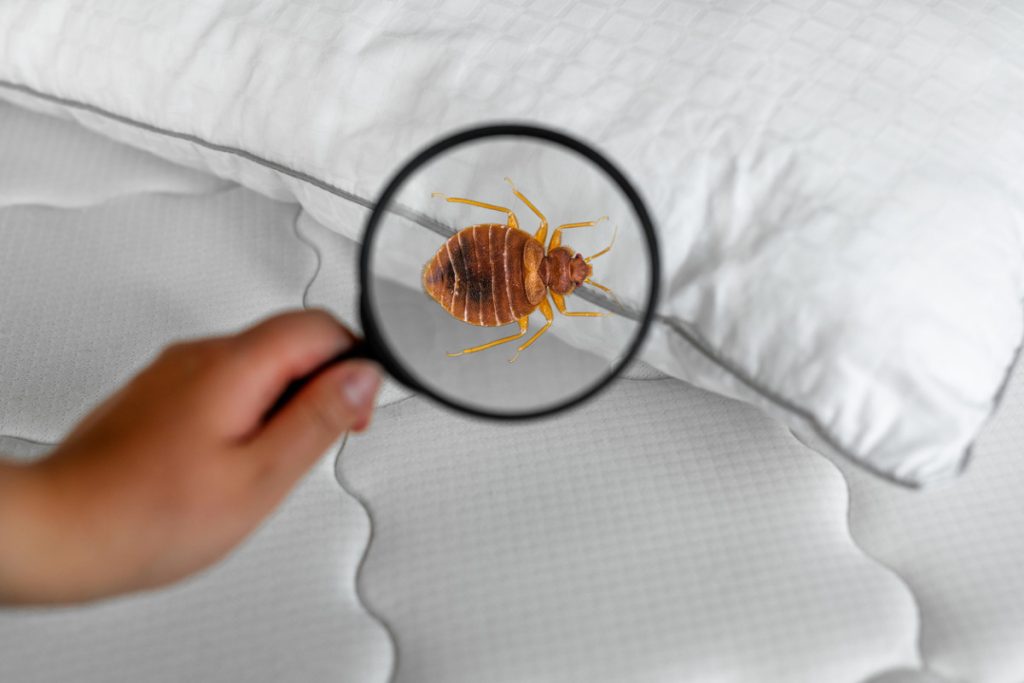Bed bugs are a persistent problem for hotels and commercial establishments, threatening not only the comfort of guests but also the reputation and bottom line of the business. Effective bed bug management requires a multi-faceted approach that combines prevention, early detection, and targeted treatment strategies. Prevention is the first line of defense. Hotels and commercial properties should implement stringent housekeeping protocols. Regular inspections of rooms, especially beds, bedding, and furniture, can help identify potential infestations before they become widespread. It is essential for staff to be trained in recognizing the signs of bed bugs, such as dark spots on mattresses or bedding, shed skins, and live bugs themselves. Regularly vacuuming carpets and upholstery can also help eliminate any potential hiding spots for these pests. Additionally, when new furniture or linens arrive, they should be thoroughly inspected and treated if necessary before being placed in guest areas. Early detection is crucial. Employing bed bug detection tools, such as canine detection teams or interceptors placed under bed legs, can significantly improve the chances of spotting bed bugs before they spread.
 These proactive measures can minimize the impact of an infestation, ensuring that guests remain unaware of any potential issues. Guest education is equally important; hotels can provide information in rooms or during check-in about what bed bugs are and how to identify signs of an infestation. This not only empowers guests but also encourages them to report any suspicious findings promptly, allowing for swift action. When an infestation is confirmed, immediate action is necessary to contain and eliminate the problem effectively. Hotels should collaborate with professional pest control services that specialize in bed bug extermination. These experts typically use a combination of chemical treatments and heat remediation techniques. Heat treatment, where the infested area is heated to a temperature lethal to bed bugs, can be particularly effective, as it reaches all hiding places, including mattresses, walls, and carpets. This method not only kills bed bugs at all life stages but also minimizes the use of chemicals, making it safer for guests. After treatment, it is essential to follow up with regular inspections to ensure the problem has been completely resolved.
These proactive measures can minimize the impact of an infestation, ensuring that guests remain unaware of any potential issues. Guest education is equally important; hotels can provide information in rooms or during check-in about what bed bugs are and how to identify signs of an infestation. This not only empowers guests but also encourages them to report any suspicious findings promptly, allowing for swift action. When an infestation is confirmed, immediate action is necessary to contain and eliminate the problem effectively. Hotels should collaborate with professional pest control services that specialize in bed bug extermination. These experts typically use a combination of chemical treatments and heat remediation techniques. Heat treatment, where the infested area is heated to a temperature lethal to bed bugs, can be particularly effective, as it reaches all hiding places, including mattresses, walls, and carpets. This method not only kills bed bugs at all life stages but also minimizes the use of chemicals, making it safer for guests. After treatment, it is essential to follow up with regular inspections to ensure the problem has been completely resolved.
Hotels should also maintain open communication with guests regarding their efforts to combat bed bugs, as transparency can help mitigate concerns and restore confidence in the establishment. Finally, investing in staff training on bed bug awareness and prevention can make a significant difference in managing infestations. Staff should understand how to respond to guest complaints and the steps to take when bed bugs are reported. Regular meetings to discuss pest management strategies and updates on the latest treatment options can also help keep everyone informed and engaged. In conclusion, addressing bed bugs in hotels and commercial establishments requires a proactive and comprehensive strategy. By focusing on prevention, early detection, and swift, effective treatment, businesses can protect their guests and their reputation click here. In a world where customer experience is paramount, a commitment to effective pest management is not just an operational necessity but a critical component of excellent service.